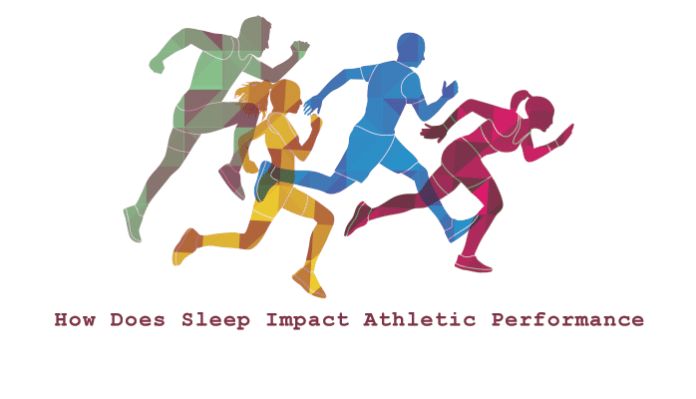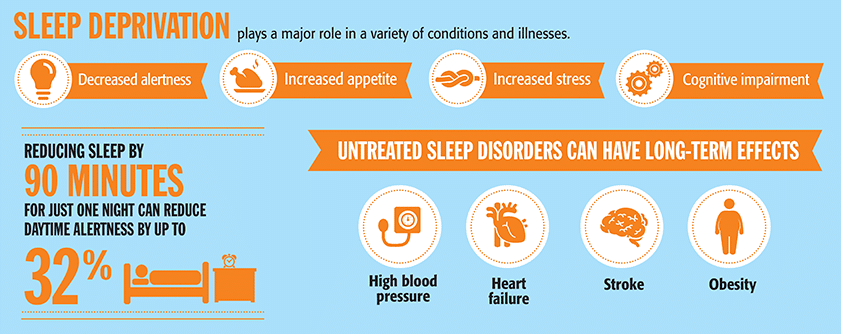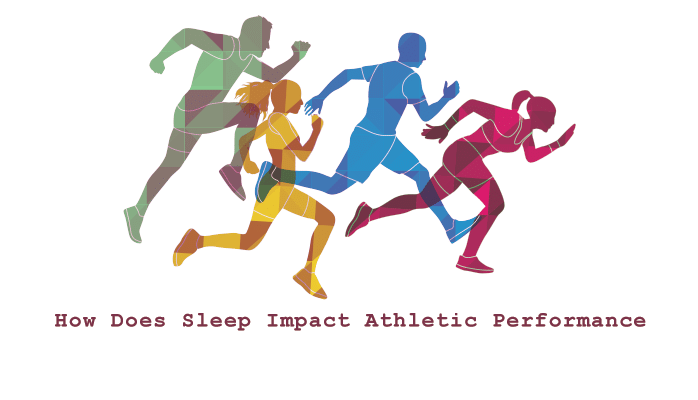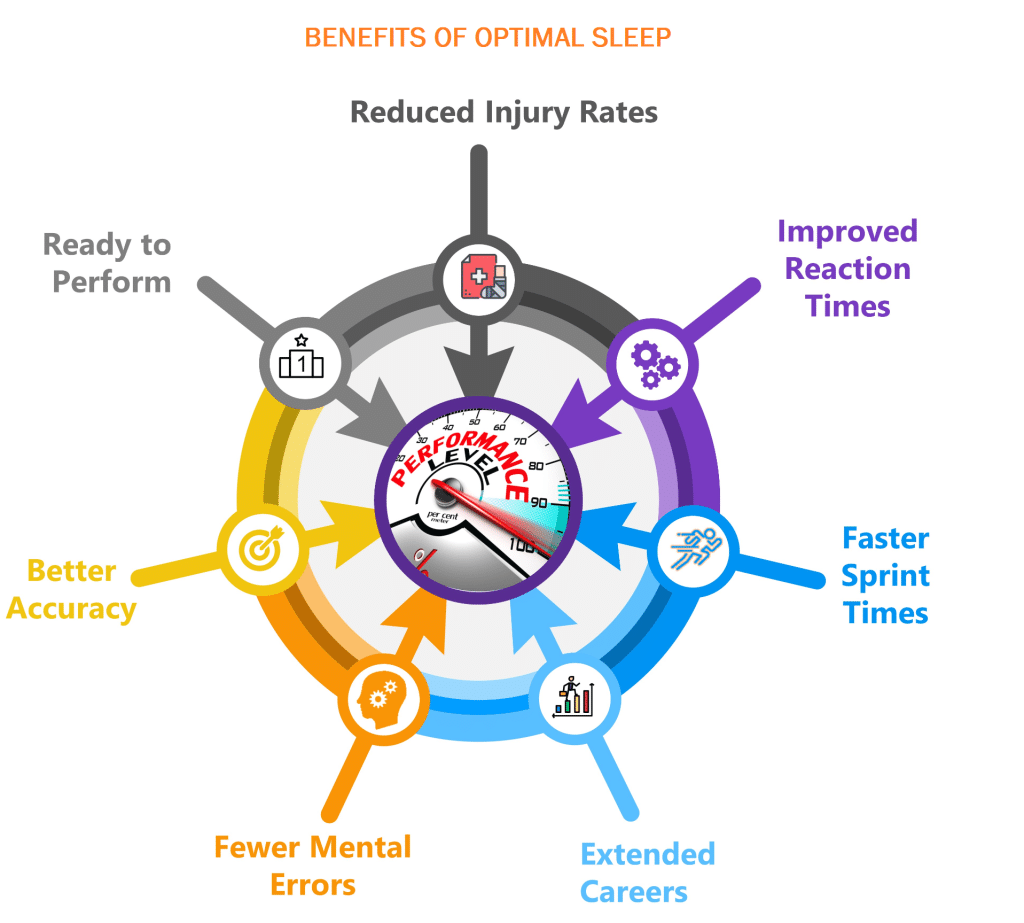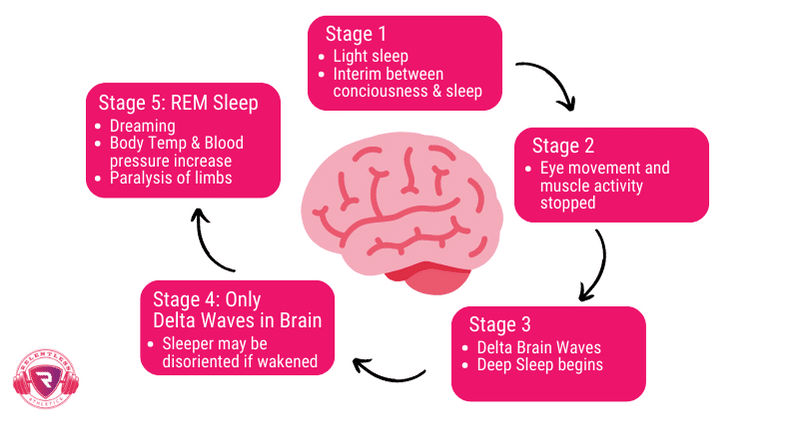Sleep is vital in enhancing athletic performance, serving as the ultimate power-up for athletes.
It is during this restful state that our bodies undergo crucial processes such as muscle repair, memory consolidation, and hormone regulation, all of which contribute to maximizing our sporting abilities.
In the quest for peak performance, ensuring sufficient and quality sleep becomes a game-changing strategy that athletes simply cannot afford to overlook.
So, strap on your running shoes and join us as we explore the fascinating relationship between sleep and athletic prowess.
Review contents
Importance of Sleep for Athletic Performance
Effects of Sleep on Physical Performance
Sleep plays a crucial role in enhancing physical performance for athletes. When we sleep, our bodies repair and rejuvenate, allowing us to recover from the physical stresses of training and competition. Adequate sleep has been shown to improve speed, agility, and overall athletic performance.
During sleep, our muscles have a chance to repair and rebuild. This is essential for athletes, as it allows for the growth and strengthening of muscle tissue. Lack of sleep can lead to decreased muscle recovery, ultimately compromising performance and increasing the risk of injuries.
Additionally, sleep deprivation can negatively affect coordination and reaction time, leading to decreased accuracy and precision in movements. It can also impair the body’s ability to regulate body temperature, reducing endurance and increased fatigue during physical exertion.
Effects of Sleep on Cognitive Performance
Sleep impacts our physical performance and plays a significant role in our cognitive abilities. Adequate sleep improves attention, reaction time, and decision-making skills, all of which are crucial in sports.
During sleep, our brains consolidate memories and information, vital for learning and skill retention. Without enough sleep, athletes may find it challenging to learn and master new techniques or strategies. Lack of sleep can also impair concentration, focus, and problem-solving abilities, affecting an athlete’s overall performance.
Moreover, sleep deprivation can have a negative impact on mood and motivation, leading to increased stress and decreased enjoyment of sports. This can further impair cognitive function and hinder an athlete’s ability to perform at their best.
Impact of Sleep on Injury Prevention
Getting enough sleep is essential for injury prevention in athletes. Sleep deprivation can increase the risk of injuries due to decreased coordination, reaction time, and muscle recovery. It also impairs judgment and decision-making, increasing the likelihood of making errors or taking unnecessary risks.
Furthermore, lack of sleep can compromise the body’s immune system, making athletes more susceptible to infections and illnesses. This can further hinder training and performance, as athletes must be healthy enough to perform at their best.
Sleep plays a vital role in the body’s natural healing process. During sleep, the body releases growth hormone, which promotes tissue repair and regeneration. This is crucial for athletes who engage in intense training and physical exertion, as it allows for proper recovery and reduces the risk of overuse injuries.
Sleep Quantity
Optimal Duration of Sleep for Athletes
The optimal sleep duration for athletes can vary depending on individual needs and their training demands. However, research suggests that most athletes require between 7 to 9 hours of sleep per night for optimal performance.
When determining the ideal duration of sleep, athletes should consider factors such as their training intensity, overall workload, and recovery needs. It is important to note that some athletes may require more sleep during periods of intense training or competition to ensure proper recovery and performance.
Effects of Sleep Deprivation on Performance
Sleep deprivation can have significant adverse effects on athletic performance. Even a single night of inadequate sleep can lead to decreased reaction time, reduced speed, and impaired decision-making. Sleep deprivation can decrease strength, endurance, and overall physical performance.
Studies have shown that sleep deprivation can also impair metabolic function, decreasing energy production and increasing fatigue. This can impact an athlete’s ability to sustain high-intensity exercise or perform at their peak for extended periods.
Not getting enough sleep can also disrupt hormone regulation, including those involved in appetite control and muscle repair. This can lead to an imbalanced metabolism and hinder recovery, making athletes more susceptible to injuries and overtraining.
Effects of Sleep Extension on Performance
On the other hand, research has also explored the effects of sleep extension on athletic performance. Some studies have shown that increasing total sleep time beyond 7 to 9 hours can improve reaction time, speed, and overall physical performance.
Sleep extension has been linked to increased accuracy and faster sprint times in athletes. It has also been associated with reduced mental fatigue and improved mood, contributing to better cognitive performance and motivation.
However, it is essential to note that excessive sleep or oversleeping can also negatively affect performance. Finding the right balance and individualizing sleep needs is critical to optimizing athletic performance.
This image is property of info.ancsleep.com.
Sleep Quality
Factors Affecting Sleep Quality for Athletes
Several factors can affect sleep quality for athletes. These include environmental factors such as noise, light, and temperature and personal factors like stress, anxiety, and pre-competition nerves.
Athletes often have demanding training schedules and competition commitments, which can disrupt regular sleep patterns. Late-night practices or games, travel, and jet lag can all contribute to poor sleep quality.
Additionally, using electronic devices like smartphones or tablets before bedtime can interfere with sleep quality. The blue light emitted by these devices suppresses melatonin, a hormone that promotes sleepiness.
Impact of Sleep Disorders on Performance
Sleep disorders can have a significant impact on athletic performance. Conditions such as insomnia, sleep apnea, and restless leg syndrome can disrupt sleep patterns and lead to poor-quality sleep.
Insomnia, characterized by difficulty falling or staying asleep, can result in chronic sleep deprivation and fatigue. This can impair physical performance, cognitive function, and overall well-being.
Sleep apnea, a condition in which breathing is repeatedly interrupted during sleep, can significantly impact an athlete’s sleep quality. It can lead to daytime sleepiness, decreased alertness, and increased risk of accidents or injuries.
Restless leg syndrome, characterized by an uncomfortable sensation in the legs that worsens during rest periods, can disrupt sleep and lead to insomnia. This can further impact an athlete’s ability to recover and perform at their best.
Strategies to Improve Sleep Quality
There are several strategies athletes can employ to improve sleep quality. Creating a comfortable sleep environment is essential, with factors such as a dark, quiet, and cool room promoting better sleep. White noise machines or earplugs can help mask external sounds that may disrupt sleep.
A consistent bedtime routine can signal the body that it is time to sleep. This can include reading, taking a warm bath, or practicing relaxation techniques.
Avoiding electronic devices before bedtime is also crucial. Athletes should aim to disconnect from screens at least an hour before sleep. Instead, engaging in calming activities such as gentle stretching or meditation can promote relaxation and signal the body to prepare for sleep.
Sleep-Wake Schedule
Importance of Consistent Sleep Schedule
Maintaining a consistent sleep schedule is essential for athletes to optimize performance. Our bodies have internal clocks, known as circadian rhythms, that regulate sleep-wake cycles. Disrupting these rhythms by frequently changing sleep times can lead to poor sleep quality and performance.
When athletes establish a consistent sleep schedule, they synchronize their internal clocks with their training and competition schedules. This promotes better sleep quality, allowing for proper recovery and performance enhancement.
A consistent sleep schedule also promotes better overall health and well-being. It helps regulate hormone production, appetite control, and general bodily functions, which are crucial for athletes’ physical and mental performance.
Effects of Irregular Sleep-Wake Schedule on Performance
Irregular sleep-wake schedules, such as frequently staying up late or experiencing frequent shifts in sleep times, can have detrimental effects on athletic performance. These disruptions can lead to increased sleep deprivation, decreased sleep quality, and impaired recovery.
Studies have shown that irregular sleep-wake schedules can result in decreased reaction time, reduced accuracy, and impaired cognitive functioning. Athletes may experience increased fatigue, decreased motivation, and difficulty concentrating during training or competition.
Furthermore, irregular sleep patterns can disrupt the body’s natural circadian rhythm, leading to hormonal imbalances and increased risks of chronic conditions such as obesity, diabetes, and cardiovascular diseases.
Strategies to Establish a Healthy Sleep-Wake Schedule
To establish a healthy sleep-wake schedule, athletes should prioritize consistency and routine. This involves going to bed and waking up at the same time each day, even on weekends or during periods of less activity.
Creating a bedtime routine that signals the body to wind down and prepare for sleep is also beneficial. This routine should be a relaxing and enjoyable ritual that helps transition from wakefulness to sleep.
Athletes can also benefit from optimizing their exposure to natural light. Getting exposure to sunlight in the morning can help regulate the internal biological clock, promoting alertness and wakefulness during the day. Additionally, avoiding bright lights and electronic devices close to bedtime can signal the body to prepare for sleep.
This image is the property of fatiguescience.com.
Sleep Hygiene
Creating an Optimal Sleep Environment
Creating an optimal sleep environment is crucial for athletes to maximize their sleep quality. The sleep environment should be comfortable, quiet, and free from distractions.
Investing in a quality mattress and pillow can significantly improve sleep comfort. Additionally, ensuring the bedroom is free from external noises or disruptive lights can help create a conducive sleep environment.
Maintaining a cool temperature in the bedroom is also important for sleep quality. Our bodies naturally cool down during sleep, so a more relaxed environment can aid in the natural drop in body temperature that promotes sleep.
Pre-sleep Routine for Athletes
Having a pre-sleep routine can help prepare the body and mind for sleep. This routine should be consistent and calming, allowing athletes to unwind and relax before bedtime.
Engaging in activities such as reading a book, practicing relaxation techniques, or taking a warm bath can help promote relaxation and signal the body that it is time to sleep. Avoiding stimulating activities or electronic devices close to bedtime is essential to prevent sleep disruptions.
Establishing a regular wind-down period, ideally about an hour before bed, can help facilitate the transition from an active state to a restful state. Consistently following this routine can train the body and mind to associate these activities with sleep, making it easier to fall asleep and stay asleep.
Avoiding Sleep Disruptors
Athletes should be mindful of potential sleep disruptors and take steps to minimize their impact. Avoiding caffeine and stimulants, such as energy drinks or certain medications, close to bedtime can help prevent sleep disturbances.
Alcohol consumption should also be moderated, as it can disrupt sleep architecture and cause fragmented sleep. While alcohol may initially induce drowsiness, it can lead to more frequent awakenings during the night and decreased overall sleep quality.
Additionally, athletes should be mindful of their fluid intake close to bedtime. Consuming large amounts of fluids before bed can lead to increased nocturnal awakenings due to the need to urinate.
Recovery and Regeneration
Role of Sleep in Recovery
Sleep plays a critical role in the recovery process for athletes. When we sleep, our bodies undergo various physiological changes that promote tissue repair, muscle growth, and overall recovery from physical exertion.
During sleep, the body releases growth hormone, which is essential for muscle repair and the synthesis of new muscle tissue. This hormone stimulates protein synthesis, allowing the body to rebuild and strengthen muscles that may have been damaged during intense training or competition.
Sleep is also when the body repairs other tissues that may have been stressed during physical activity, such as tendons, ligaments, and bones. Releasing various other hormones during sleep also contributes to tissue repair and regeneration.
Without adequate sleep, athletes can experience prolonged muscle soreness, delayed recovery, and increased risk of overuse injuries. Sleep deprivation can also lead to imbalanced hormone levels, hindering the body’s natural repair processes.
Effects of Sleep on Muscle Repair and Growth
Sleep is crucial for muscle repair and growth. During the deep stages of sleep, our bodies release growth hormone, which is responsible for stimulating muscle protein synthesis.
Adequate sleep not only promotes the repair of damaged muscles but also enhances muscle growth. It allows for the optimal utilization of nutrients and promotes an anabolic environment, essential for muscles to adapt and grow in response to training stimulus.
Furthermore, sleep deprivation can disrupt necessary hormone regulation, such as increased levels of cortisol, a stress hormone that can inhibit muscle growth. It can also lead to imbalances in other hormones, such as testosterone, which is vital for muscle repair and growth.
Sleep’s Impact on Hormonal Balance
Sleep plays a significant role in hormone regulation, crucial for athletic performance and recovery. Adequate sleep promotes the release of hormones that contribute to muscle repair, growth, and overall recovery.
During sleep, the body releases growth hormone, which stimulates protein synthesis and assists in tissue repair. This hormone is essential for the growth and strengthening of muscles, as well as the repair of damaged tissues.
Additionally, sleep is essential for the regulation of cortisol, a hormone that plays a role in the body’s response to stress. Lack of sleep can lead to increased cortisol levels, hindering muscle repair and growth and increasing the risk of overtraining.
Sleep also affects the production of testosterone, a hormone involved in muscle repair and growth. Inadequate sleep can lead to decreased testosterone levels, which can negatively impact recovery and limit muscle adaptation.
This image is the property of info.ancsleep.com.
Mental Preparation and Focus
Effects of Sleep on Mental Performance
Sleep has a profound impact on the mental performance of athletes. Getting enough sleep is crucial for maintaining optimal cognitive function, including attention, memory, and problem-solving abilities.
During sleep, our brains undergo critical processes that consolidate memories and information. This is vital for learning and skill retention, both of which are crucial for athletes to continually improve and adapt to new challenges.
Lack of sleep can lead to decreased attention span, impaired memory recall, and reduced ability to concentrate. Athletes may experience difficulty maintaining focus during training or competition, leading to errors and decreased performance.
Furthermore, sleep deprivation can negatively affect mood and motivation. Athletes who do not get enough sleep may experience increased stress, irritability, and decreased enjoyment of sports. This can further impact mental performance and hinder an athlete’s ability to perform at their best.
Enhancing Cognitive Functions through Sleep
Adequate sleep is essential for enhancing cognitive functions in athletes. Incorporating enough high-quality sleep into an athlete’s routine can lead to improved attention, memory, and overall mental performance.
Research has shown that sleep positively affects memory consolidation and learning. During sleep, the brain processes and stores information gathered throughout the day, allowing for better recall and retention of skills and strategies.
Additionally, sleep promotes creative problem-solving and critical thinking abilities. It allows for the activation of different brain regions, aiding in the synthesis of information and the generation of innovative ideas.
Sleep has also been linked to better emotional regulation and resilience. Athletes who get enough sleep are more likely to have improved mood, reduced stress levels, and increased motivation. This contributes to enhanced mental well-being and excellent preparation for training and competition.
Sleep’s Influence on Concentration and Decision-Making
Sleep significantly influences an athlete’s concentration and decision-making abilities. When we do not get enough sleep, our cognitive functions, including attention and focus, are impaired.
Lack of sleep can lead to decreased concentration and attention span, making it difficult for athletes to stay focused during training or competition. This can result in errors, missed opportunities, and decreased overall performance.
Sleep deprivation can also impair decision-making abilities. Without sufficient sleep, athletes may experience decreased judgment, reduced ability to think critically, and increased risk-taking behaviors. This can negatively impact strategy execution and overall performance outcomes.
Getting adequate sleep promotes mental clarity and alertness, enhancing an athlete’s ability to concentrate and make effective decisions under pressure. It allows athletes to approach training and competition with a clear and focused mind, optimizing performance outcomes.
Effect of Sleep on Endurance
Impact of Sleep on Endurance Performance
Sleep plays a crucial role in endurance performance for athletes. Sufficient sleep directly affects an athlete’s aerobic capacity, muscular endurance, and cardiovascular system.
During sleep, our bodies go through critical processes that assist in regenerating energy stores, repairing muscle tissue, and optimizing cardiovascular function. This is especially important for endurance athletes who rely on sustained performance over prolonged periods.
Sleep deprivation can negatively impact an athlete’s aerobic capacity, reducing oxygen uptake and utilization. This can lead to decreased endurance capacity and an increased perception of effort during endurance activities.
Additionally, sleep deprivation has been linked to decreased glycogen storage, a critical energy source during prolonged, high-intensity exercise. Inadequate sleep can deplete glycogen stores, leading to premature fatigue and a reduced ability to maintain optimal endurance performance.
Effects of Sleep on the Cardiovascular System
Sleep influences the cardiovascular system and can have significant effects on endurance performance. During sleep, our bodies undergo necessary cardiovascular adaptations, contributing to overall health and fitness.
Adequate sleep promotes healthy blood pressure and heart rate regulation. It allows for the optimization of heart function, including the restoration of heart muscle cells and the regulation of cardiac output.
Sleep also influences blood flow and oxygenation to working muscles. When we sleep, blood vessels dilate, increasing blood flow and nutrient delivery to the muscles. This is crucial for endurance athletes who require efficient oxygen and nutrient transport to sustain prolonged exercise.
Additionally, sleep deprivation can disrupt the regularity of heart rate and blood pressure, leading to increased cardiovascular stress during exercise. This can result in decreased endurance capacity and increased susceptibility to cardiovascular-related issues.
Optimizing Sleep for Endurance Athletes
To optimize sleep for endurance athletes, several strategies can be employed. Establishing a consistent sleep schedule and prioritizing sleep as an essential part of training and recovery is crucial.
Endurance athletes should aim to get between 7 to 9 hours of sleep per night, allowing for sufficient recovery and adaptation to training stimuli. Athletes can work with their coaches or sports science professionals to personalize sleep routines to align with training schedules and goals.
Creating a sleep environment that is conducive to sleep quality is also essential. Adequate temperature control, minimizing external noise and light, and ensuring a comfortable mattress and pillow can significantly improve sleep comfort and overall restfulness.
Additionally, endurance athletes should be mindful of their training and nutrition practices close to bedtime. Avoiding intense exercise within a few hours of sleep can help prevent excessive stimulation and promote relaxation. A balanced meal or snack that includes carbohydrates and protein before sleep can aid muscle recovery and replenish energy stores.
This image is the property of metrifit.com.
Strength and Power Performance
Effects of Sleep on Strength and Power Output
Sleep has a significant impact on an athlete’s strength and power performance. Adequate sleep allows for proper muscle recovery, enhancing strength gains and power output.
During sleep, our bodies release growth hormone, which stimulates protein synthesis and muscle repair. This is crucial for strength athletes who engage in intense resistance training, as it allows for the growth and strengthening of muscle tissues.
Insufficient sleep can impair the body’s ability to recover and repair muscles, leading to decreased strength gains and power output. Without enough sleep, athletes may experience increased muscle fatigue, decreased force production, and reduced explosive performance.
Research has shown that athletes who prioritize sleep and get enough restorative sleep between training sessions experience more significant strength gains and improved power performance.
Muscle Fatigue and Recovery with Sleep
Sleep is essential for muscle fatigue recovery in athletes. During sleep, our bodies undergo various processes that help repair damaged muscle fibers and replenish energy stores.
When we sleep, our bodies release growth hormone, which stimulates protein synthesis and muscle repair. This is crucial for athletes engaging in intense training or competition, as it allows for efficient muscle recovery and reduced post-exercise fatigue.
Additionally, sleep promotes glycogen restoration, which is essential for replenishing energy stores in muscles. Adequate sleep allows for optimal glycogen synthesis, ensuring that the muscles have sufficient fuel for the next training session or competition.
On the other hand, lack of sleep can impair muscle recovery and increase the risk of muscle fatigue. Insufficient sleep can lead to prolonged muscle soreness, delayed recovery, and decreased muscle glycogen restoration.
Sleep and Enhancement of Explosive Movements
Sleep plays a significant role in enhancing explosive movements for athletes. Explosive movements, such as sprinting, jumping, and throwing, rely on the activation of fast-twitch muscle fibers, which generate quick and powerful contractions.
During sleep, our bodies consolidate muscle memory, contributing to skill retention and motor learning. This is vital for athletes who rely on explosive movements, as it allows for the optimization of technique, coordination, and motor patterns.
Additionally, sleep promotes the release of growth hormone, which plays a role in muscle development and strength gains. This hormone supports the synthesis of new muscle fibers, allowing for increased force production during explosive movements.
Lack of sleep can impair explosive performance by hindering muscle recovery and reducing motor coordination. Athletes who do not get enough sleep may experience decreased power output, slower reaction times, and decreased overall explosive performance.
Sleep Tracking and Monitoring
Advancements in Sleep Monitoring Technology for Athletes
Advancements in sleep monitoring technology have provided athletes with valuable insights into their sleep patterns. Sleep monitoring devices can track different aspects of sleep, such as sleep duration, quality, and stages, providing athletes with data to optimize their sleep routines.
Wearable devices like fitness trackers or smartwatches often include sleep-tracking features. These devices use accelerometers and heart rate monitors to track sleep duration and provide metrics on sleep quality, including the frequency of wakefulness, sleep stages, and sleep efficiency.
Some sleep monitoring devices also incorporate features such as light and noise sensors, which can inform athletes about potential sleep disruptors in their environment.
Utilizing Sleep Data to Optimize Performance
Athletes can utilize sleep data provided by monitoring devices to optimize their performance. By tracking sleep duration, quality, and patterns, athletes can identify areas for improvement and adjust their sleep routines.
Analyzing sleep data can help athletes determine if they are getting enough sleep to support their training and recovery needs. It can also highlight potential sleep disruptors, such as environmental factors or lifestyle habits, that may be negatively impacting sleep quality.
Athletes can use sleep data to understand how sleep affects their physical and cognitive performance. By correlating sleep metrics with training outcomes, athletes can make informed decisions about adjusting their sleep routines to optimize performance.
Additionally, sleep data can serve as a valuable communication tool between athletes and their coaches or sports science professionals. Athletes can receive personalized guidance on sleep strategies and adjustments to enhance performance and recovery by sharing sleep data.
Benefits and Limitations of Sleep Tracking Devices
Sleep tracking devices offer several benefits for athletes, but they also have limitations that athletes should be aware of.
One of the main benefits of sleep tracking devices is the ability to gain valuable insights into sleep patterns and behaviors. Athletes can use this information to make data-driven decisions about their sleep routines, training schedules, and lifestyle factors that may impact sleep quality.
Sleep tracking devices can also help athletes develop better awareness of their sleep habits and make the necessary adjustments for optimal sleep quality and quantity. This can lead to improved recovery, enhanced cognitive function, and overall performance enhancement.
However, it is essential to recognize the limitations of sleep-tracking devices. While they can provide valuable data, they may not always accurately measure sleep stages, mainly when using wrist-based sensors. Additionally, the interpretation and application of sleep data require a comprehensive understanding of sleep science and individual variability.
Athletes should also be cautious not to rely excessively on sleep-tracking devices. The subjective experience of feeling rested and recovered is still crucial, and it is essential to prioritize overall well-being and listen to one’s body.
In conclusion, sleep plays a crucial role in optimizing athletic performance. It impacts physical and cognitive performance, injury prevention, recovery, mental preparation, and specific aspects of performance such as endurance, strength, and power.
Athletes should prioritize both sleep quantity and quality, establish consistent sleep schedules, create optimal sleep environments, and employ strategies to improve sleep hygiene. Utilizing sleep tracking devices can provide valuable insights, but athletes should also be mindful of their limitations and prioritize overall well-being.
By prioritizing sleep, athletes can enhance their performance, reduce the risk of injuries, and optimize their overall well-being.
This image is the property of images.squarespace-cdn.com.

